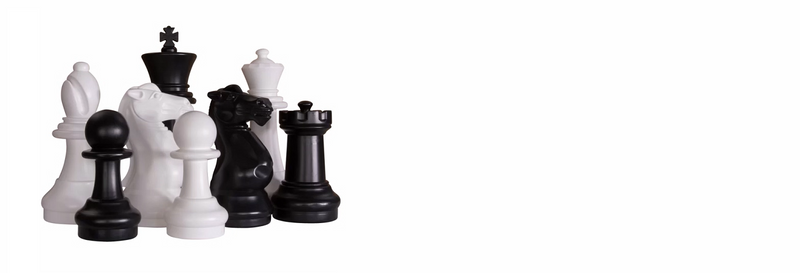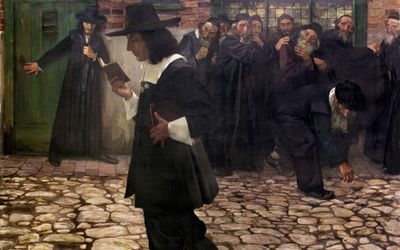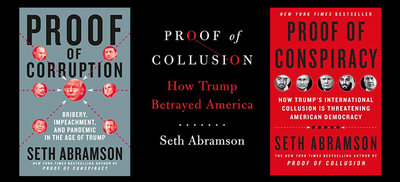To ALL KINGS & QUEENS of Earth
Why does the world look like we’re playing international checkers instead of chess?
Where did all of the brilliant moves go, where players saw five moves ahead instead of only their last mistake?
We have a choice to see the world stage as simple checkers or complicated chess. True, from a distance, chessboards and checkerboard games seem similar. However, they differ. Checker pieces are uniform disks while chess pieces are almost holy, an army of pawns and knights, the priestly class, and the king and queen. Both are games to keep the kingdom from your opponent.
If I look at the world today, I see strange similarities between life, chess & checkers.
Chess is a war over the board. The object is to crush the opponent’s mind.”
– Bobby Fischer
What could be simpler than to see the world reflected in an 8 x 8 square game board? In checkers, you try to jump your piece across pieces in order to cross the board and say, "King me".
Typically the darker Checkers color pieces move first. Each player takes their turn by moving a piece. Pieces are always moved diagonally and can be moved in the following ways:
- Diagonally in the forward direction (towards the opponent) to the next dark square.
- If there is one of the opponent's pieces next to a piece and an empty space on the other side, you jump your opponent and remove their piece. You can do multiple jumps if they are lined up in the forward direction.
Checkers, in this stage of this info-tech age of virtual video games, give me a half shot of dopamine before boredom sets in.
Eternity is a child playing, playing checkers; the kingdom belongs to a child.”
— Heraclitus
Putin played checkers in Ukraine with chess pieces.
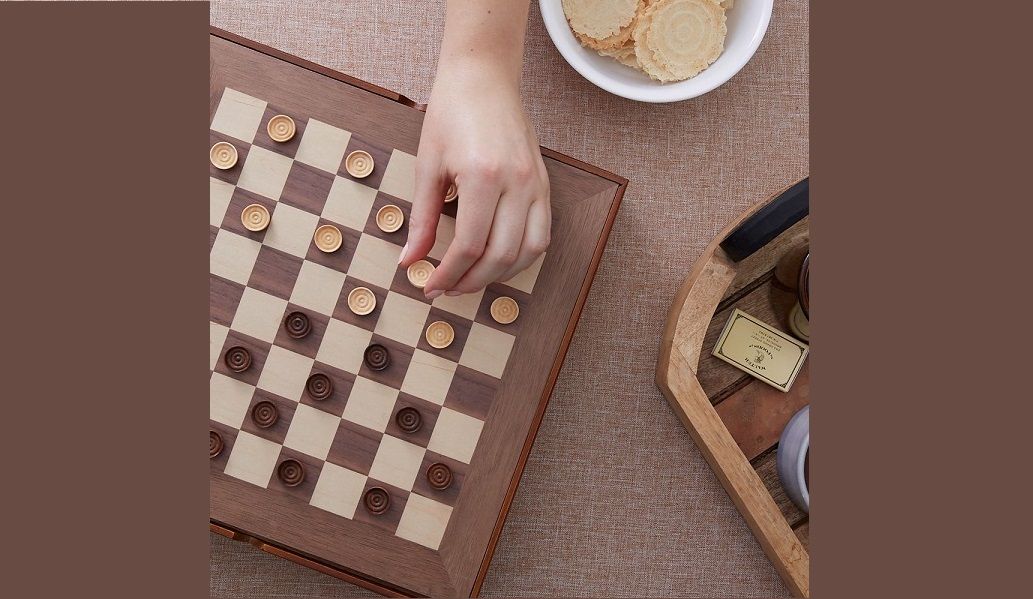
In chess, you have a violent landscape to tame. Your front eight pawns are strategic if used strategically, or they're cannon fodder. The line behind them is populated with castles (aka rooks) and bishops. These can only move up/down and side/side or diagonally. You have the queen, who can move almost any direction, and you have the king, and he seldom moves and if he's killed, the game is over.
Putin seems in search of a knight strategy. It's the least predictable piece.
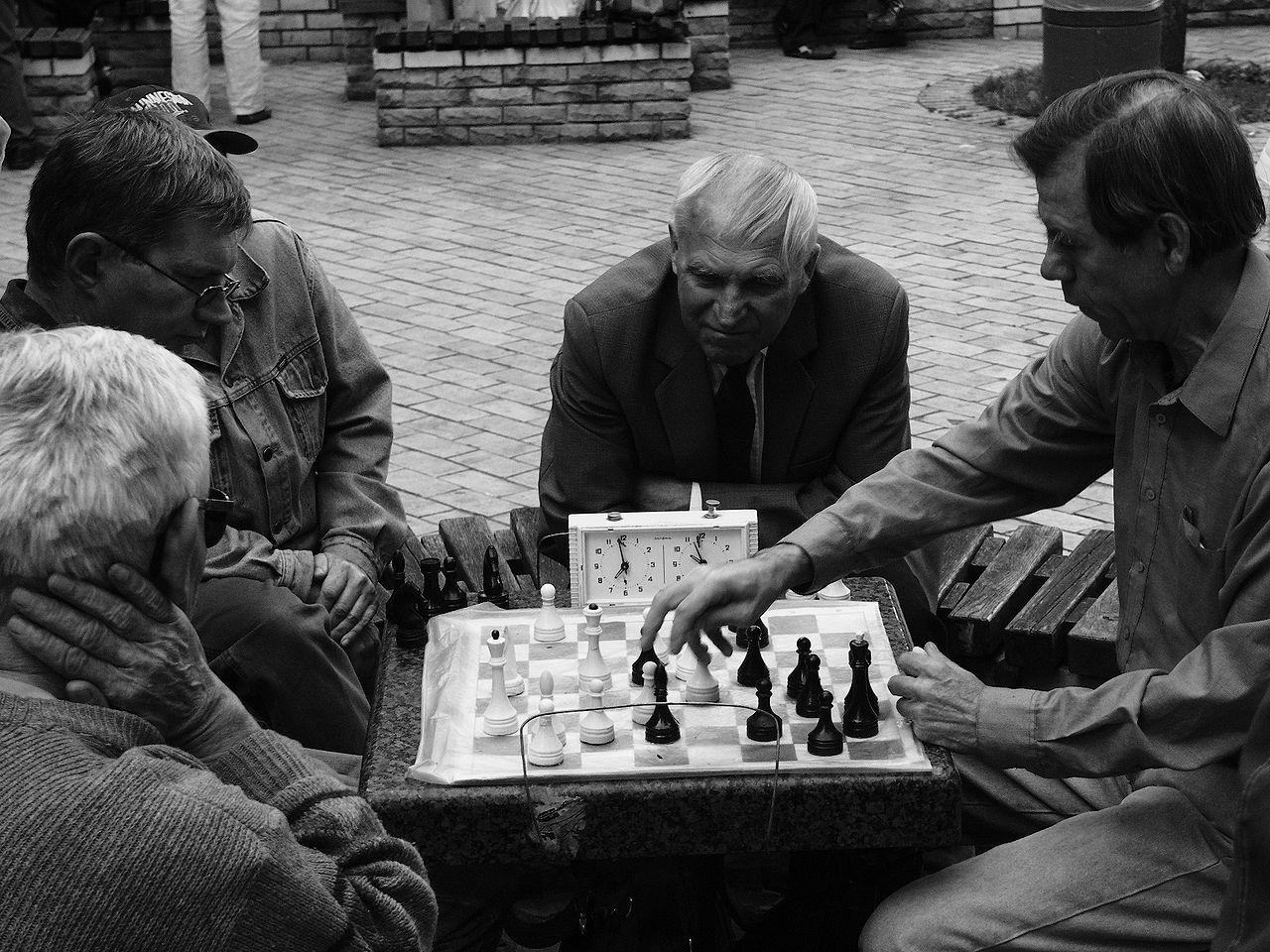
The knight acts differently than all the other pieces, he moves in an L-shape, jumping over pieces, a law the other pieces are governed by. It's very difficult to read the game of chess because of the millions of potential moves, specifically the knight. In the point system, a knight and a bishop are both worth 3 out of 9 (a pawn is worth 1, a rook is worth 5 and the queen is worth 9). Amazingly talented ancient game-makers knew the introduction of this radical piece, unlike all others who have their straight-lined lives, would indeed have a place in all future games.
It’s the horsey-shape piece that moves in an L shape. It’s what makes chess complicated, and why stupid people can’t play chess. Go play checkers! Knights are the first piece you look at. They elevate the game. No chess master wants to lose her knights.”
– Courtney Love
The knight is the most fun piece to work with, it's where the exclusive difficulty comes in with flared nostrils. The knight gallops about the board surprising your opponent with “knight forks” which are when your knight lands in a space that can trap both a king and queen or another valuable piece. To save the queen (and let the game continue), the king sacrifices his wife.
"The rules of chess govern the play of the Chess. While the exact origins of chess are unclear, it appears to have first become popular in Persia but modern rules first took form during the Middle Ages. The rules continued to be slightly modified until the early 19th century, even trying playing with 10x10 boards, when they reached essentially their current rules. They also varied somewhat from place to place."
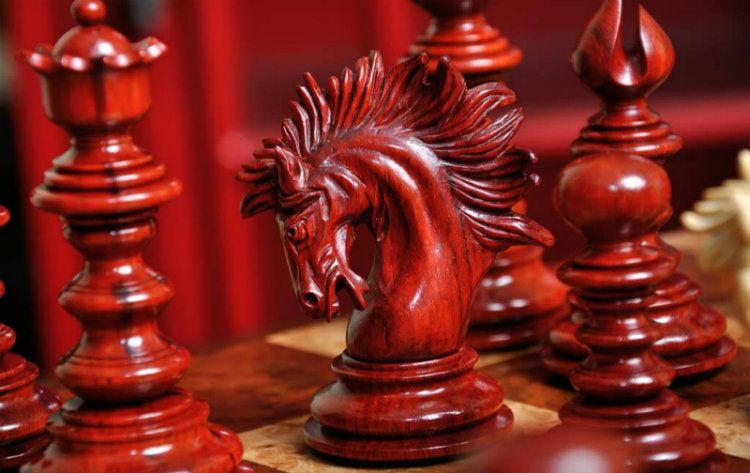
For most of my 50+ years, I've played chess. My father taught me in a small room fortified with books to the ceiling. And since we didn't have a TV, this room was not the TV room but - the den. I learned to play chess fairly well by 10 years old. I belonged to the chess club at school (full disclosure).
My Dad taught me. My Dad beat me, he would offer advice, he would drop hints like asking me if I'm thinking about my bishop's next move, but he would beat me.
The beauty of chess is it can be whatever you want it to be. It transcends language, age, race, religion, politics, gender, and socioeconomic background. Whatever your circumstances, anyone can enjoy a good fight to the death over the chessboard.”
– Simon Williams
Then one night, as pipe tobacco sat like the fat cumuli of heaven, and Nana Mouskouri sang in Greek on our family's record payer, my Dad taught me an invaluable life lesson. I was cornered, I couldn’t get my army out of trouble. I gave up, I resigned.
“You give up too early.”
I knew when I saw a defeat. In real life, I would have just lost the whole kingdom.
My Dad was beating me at chess, and I couldn't see a way to win. Even when he walked me through his methods, and I tried to see a few moves ahead, I inevitably shrugged my shoulders and said I was defeated.
Then my Dad rotated the chessboard 180-degrees and beat me with my own pieces.
Kinda like Zalinski using captured Russian tanks against Putin.
My Dad would show me that there had been a way through it all to victory if I'd just looked harder.
We know Zalinski’s Ukraine did not “give up too early” indeed, will not give up.
The intellectual depth in chess, its richness, and the endless ways a game can be played out - the characteristics were adult, mature, and intelligent, and the pieces were magical medieval archetypes.
And growing up I frequently saw where life imitated chess, where were the complicated people working and solving? Maybe in the financial world or the medical. Possibly it was in nuclear treaties or the United Nations. Perhaps it was as personal as divorce court or during a car accident. Certain elements of life seemed critically intelligent, or at least there had to be highly competent people running them.
They could be the power grids or the FBI or paramedics. They could be Greenpeace, voter registration, or whoever is doing something about climate change. And there are our universities, in full control of creating the smartest but broken people on the planet. If all of this is true, why does the world look like we're playing A LOT MORE CHECKERS THAN CHESS?
Where did the extreme education go - and who left the screen door open?
Checkers is a child’s game; there is no higher power in checkers, there is no Checker-God. It's a small gleeful mental step-up from Tic-Tac-Toe.
Chess is a battle of intelligence, a war of knowing how to war. And Chess is watched over by God’s double bishops, the rules are assembled just "so" - that I can see it being God's favorite game to watch. After Snooker.
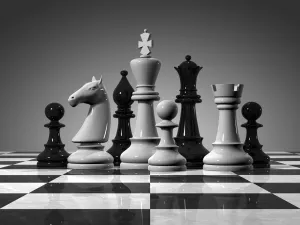
This world used to mystify me – but now I see naked Emperors everywhere: everyone on earth is playing checkers.
My Dad was right about that chess demonstration and life; there can be a way to the victories we face losing in the world. It depends on the power of your pieces and the power of your mind but most of all in believing: there is often a route to beating your opponent.
If we can’t see it in front of us for ourselves, perhaps the world needs someone to rotate the game board 180 degrees and beat us with our own pieces.
Sources:
www.ichess.net/blog/chess-quotes/
www.brainyquote.com/topics/checkers-quotes
www.chess-site.com
www.officialgamerules.org/checkers
www.wikipedia.com/chess

